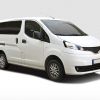How Much Does a Van Conversion Cost? A Detailed Guide (2023)
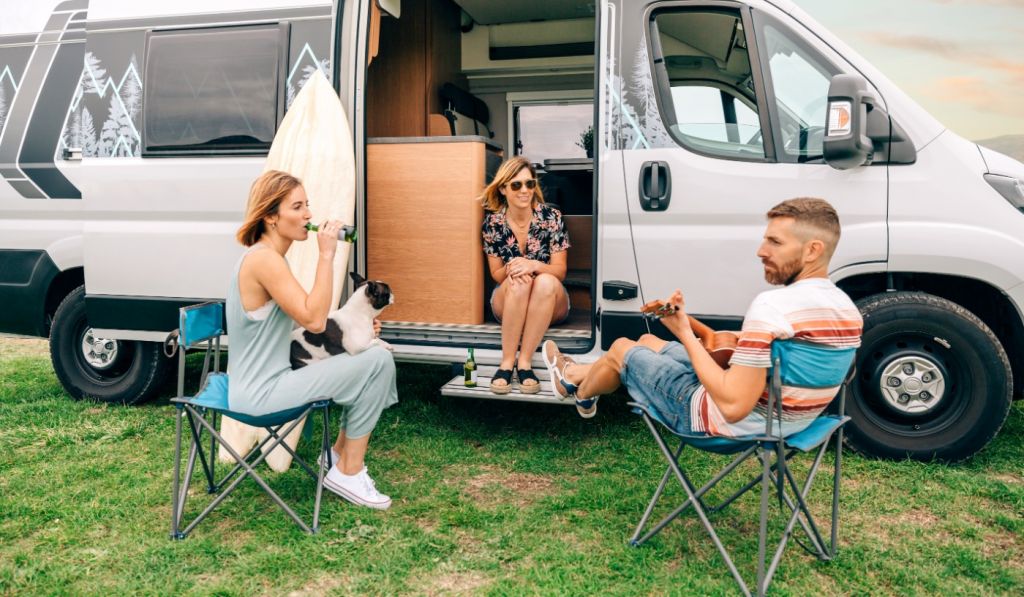
Picture this: cruising down the highway in your very own customized van, complete with all the bells and whistles. If you've ever dreamed of just up and hitting the road, the cost of that dream is probably top on your mind. Fear not, curious adventurer! This article will dive deep into the realm of van conversions, giving you a detailed guide on the nitty-gritty costs associated with transforming your everyday vehicle into a next-level mobile abode.
The average van conversion cost ranges from $15,590 - $83,900. Most conversions cost between $20,000 - $40,000. The cheapest conversion method would be to buy a used budget van and only add the bare necessities, costing you roughly $15,590. If you add comfort items such as solar panels and a hot water heater, your total cost would be roughly $21,540.
The world of van conversions is as varied as the people who choose to take on these exciting DIY projects. Choices range from modest and low-budget conversions to full-blown luxurious tiny homes on wheels. To help you navigate these waters, we have gathered information on what it takes to convert a van, all while keeping your wallet (relatively) intact.
With countless decisions to make – from choosing the right van and materials to the number of disco balls that will hang from the ceiling – knowing the true cost of a van conversion can feel like navigating through a maze. But fret not, as this detailed guide will illuminate the path to your very own mobile paradise.
The Exact Costs of Your Van Conversion (with Tables)
Overview
Embarking on a van conversion journey can be as thrilling as it is daunting. One of the primary concerns is the cost. In this guide, we'll walk you through the nitty-gritty details of van conversion costs, from the bare necessities to those splurge-worthy features you've been ogling on Instagram. Strap in, and let's dive into the world of van conversions!
| Item | Cost Range |
|---|---|
| Van purchase (new) | $30,000 - $60,000 |
| Van purchase (used) | $10,000 - $50,000 |
| Bare necessities | $1,450 - $7,400 |
| Splurge-worthy features | $4,500 - $16,500 |
| Total | $15,590 - $83,900 |
The exact costs greatly depend on what type of van you'll buy, and what exact features you'll add. Below you'll find a detailed overview for each of those line items so you can calculate exactly what your dream conversion would cost. I've based these figures on multiple reliable sources of people that have actually done the thing. It should give you very dependable ball-park-figures for your situation.
Van Purchasing Cost
The table below shows the price range for the most popular van conversions, both new and used. We've scoured the internet and talked to the experts at Outside Van, VanDOit, and Sportsmobile to bring you this sweet data.
| Van Model | Price Range for New Models | Price Range for Used Models |
|---|---|---|
| Mercedes Sprinter | $42,000 - $60,000 | $15,000 - $50,000 |
| Ford Transit | $35,000 - $50,000 | $20,000 - $35,000 |
| Ram Promaster | $30,000 - $45,000 | $15,000 - $35,000 |
| Nissan NV | $30,000 - $45,000 | $15,000 - $35,000 |
| Chevy Express | $30,000 - $40,000 | $10,000 - $25,000 |
Sources: Outside Van, VanDOit, Sportsmobile
The Bare Necessities
Let's start with the essentials. These are the non-negotiable items that you'll need to make your van livable. Here's a table summarizing the costs:
| Item | Cost Range | Suggested Source |
|---|---|---|
| Insulation | $200-$500 | The Van Conversion Guide |
| Flooring | $100-$400 | Campervan Traveler |
| Walls & Ceiling | $150-$600 | Two Roaming Souls |
| Electrical System (DIY) | $200-$2,000 | Sportsmobile |
| Basic Kitchen & Stove | $300-$1,500 | Mobility Express |
| Bed Frame & Mattress | $300-$1,000 | The Van Conversion Guide |
| Plumbing System (DIY) | $100-$1,000 | Campervan Traveler |
| Ventilation & Fans | $100-$400 | Two Roaming Souls |
| Total | $1,450-$7,400 |
Just remember, ye of tight-budgeted courage, you can always flex your DIY muscles to save some cash.
Splurge-Worthy Features
Ah, the lavish life of a van-dweller! If you're looking to upgrade your van's swank-factor, consider some of these fancy features. Prices may vary, but here's a ballpark figure for you:
| Item | Cost Range | Suggested Source |
|---|---|---|
| Solar Panels | $500-$1,500 | Sportsmobile |
| Roof Rack | $500-$1,500 | Two Roaming Souls |
| Custom Cabinetry | $1,000-$5,000 | Campervan Traveler |
| Lithium Batteries | $1,000-$1,500 | The Van Conversion Guide |
| Hot Water Heater | $500-$2,000 | Sportsmobile |
| High-End Appliances | $1,000-$5,000 | Mobility Express |
| Total | $4,500-$16,500 |
Remember, the "splurge-worthy" features are as tantalizing as they are optional. Pick and choose what suits your needs and wallet, and soon you'll be living that van life dream!
Decoding the Van Conversion Adventure
For intrepid travelers and DIY enthusiasts, van conversions are the ultimate DIY project that combines creativity and wanderlust. Figuring out the costs of a van conversion can feel like seeking the Holy Grail, but fear not, as we delve into the maze of van conversion expenses!
While van conversion costs may range from $5,000 to $25,000 and beyond (source), one thing is for certain: customization and personal preferences dictate the final price. What could be a budget-friendly plywood paradise for some might be an oak-laden oasis for others. Seriously, folks, one person's wooden battens are another person's gold bars.
| Van Conversion Type | Materials Cost |
|---|---|
| Mid-Range | Approximately $650 |
| High-End | Approximately $2,200 |
So, the world of van conversions is your oyster (or pistachio, if you're not into shellfish). For example, electrical systems and water systems can add anywhere between a few hundred and a few thousand dollars to your van-venture budget (source).
Van conversion companies offer varying degrees of expertise, with costs ranging from $60,000 to $90,000 for a professional build-out (source). Make sure to channel your inner Sherlock Holmes and evaluate their experience to avoid any van conversion whodunit situations.
Ultimately, planning a budget and prioritizing your must-haves and would-likes will guide your van transformation odyssey. Embrace the adventure, and don't forget to pack a sense of humor along with those wooden battens!
To DIY or Not to DIY? Weighing the Options
When it comes to van conversions, one question often haunts the minds of aspiring vanlifers: Should they take the plunge into the world of DIY, or leave it to the professionals? Fear not, dear reader, for we shall weigh the options with you and bring some clarity to this conundrum.
Let's start with the ever-popular DIY route. The freedom to pick and choose every aspect of your conversion can be enticing, and the pride that comes with completing it all by yourself is undeniably satisfying. A crucial advantage to embrace the DIY project is the money-saving opportunity, a van conversion can range from $5,000 to $25,000 and beyond depending on the complexity and quality.
However, like all good things in life, DIY conversions come with their share of challenges. A steep learning curve, potential lack of experience, and essential tools could lead to some well-intentioned yet less-than-stellar results. But hey, at the end of the day, they don't call it a "learning experience" for nothing.
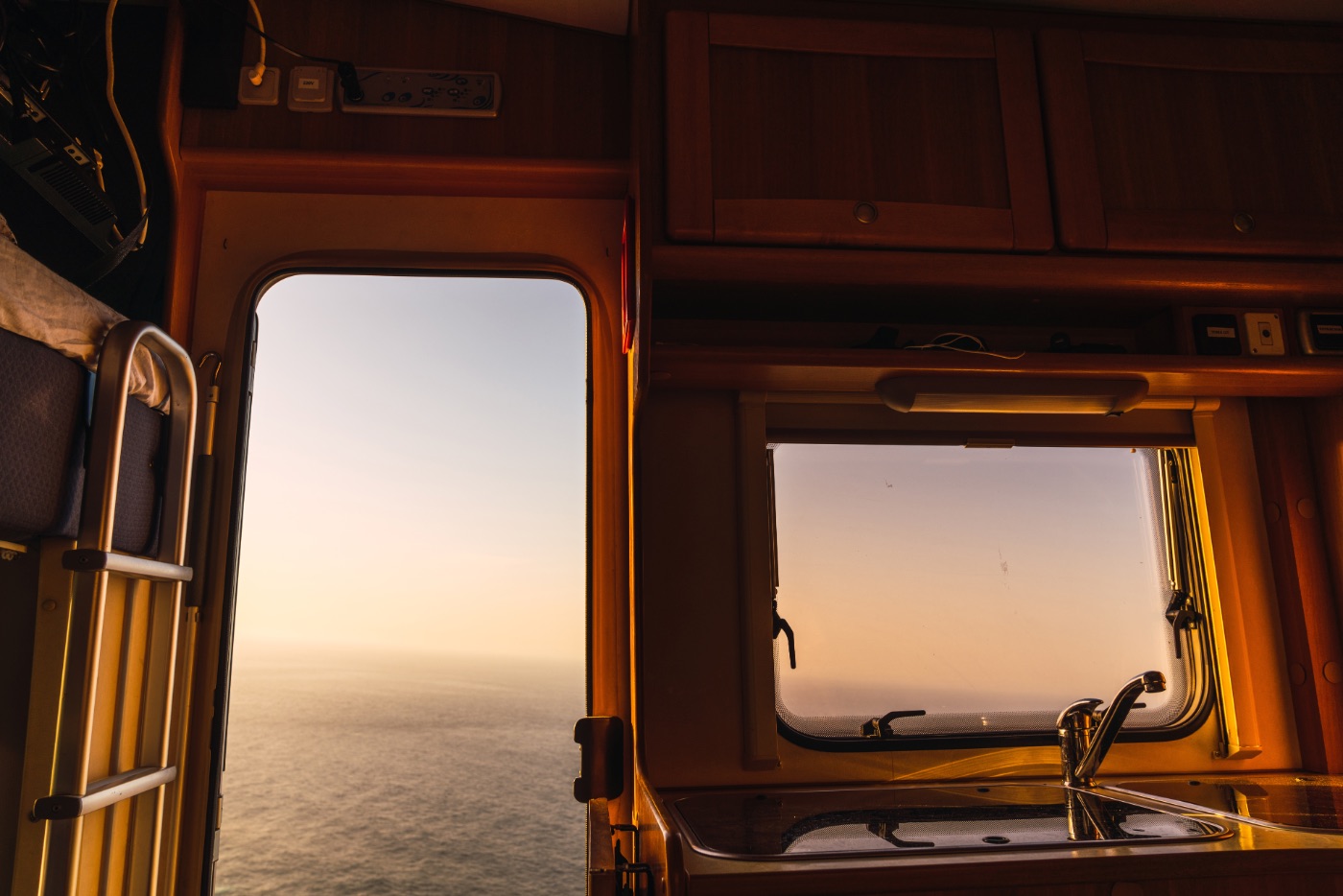
On the other end of the spectrum, we have the professional van conversion option. Handing over the reins to experienced craftsmen not only guarantees high-quality workmanship, but it also leaves you free to daydream about your upcoming adventures (or catch up on your favorite Netflix shows). You can expect prices for these professional conversions to start at around $12,000 to $35,000+, depending on the range of amenities and systems included.
Of course, there's always the downside of parting with a substantial chunk of change, and possibly dealing with the inevitable wait times associated with hiring experts for this specialized labor. Moreover, opting for a professional conversion may leave you less acquainted with your van's inner workings, which might be inconvenient in case of any necessary repairs down the road.
In summary, both avenues offer their unique set of pros and cons, but ultimately, the choice lies with you, the future van enthusiast. As Shakespeare might have said, "To DIY, or not to DIY, that is the question." Ahem, if he were into van conversions, of course.
Choosing Your Chariot: Van Types Explained
Before diving into the magical world of van conversions, one must first decide which trusty steed will be their mobile castle. Three popular van types dominate the market: Dodge Promaster, Ford Transit, and Mercedes Sprinter. Fear not, for we shall provide a concise overview and pros and cons list of each chariot to help make the decision a tad easier.
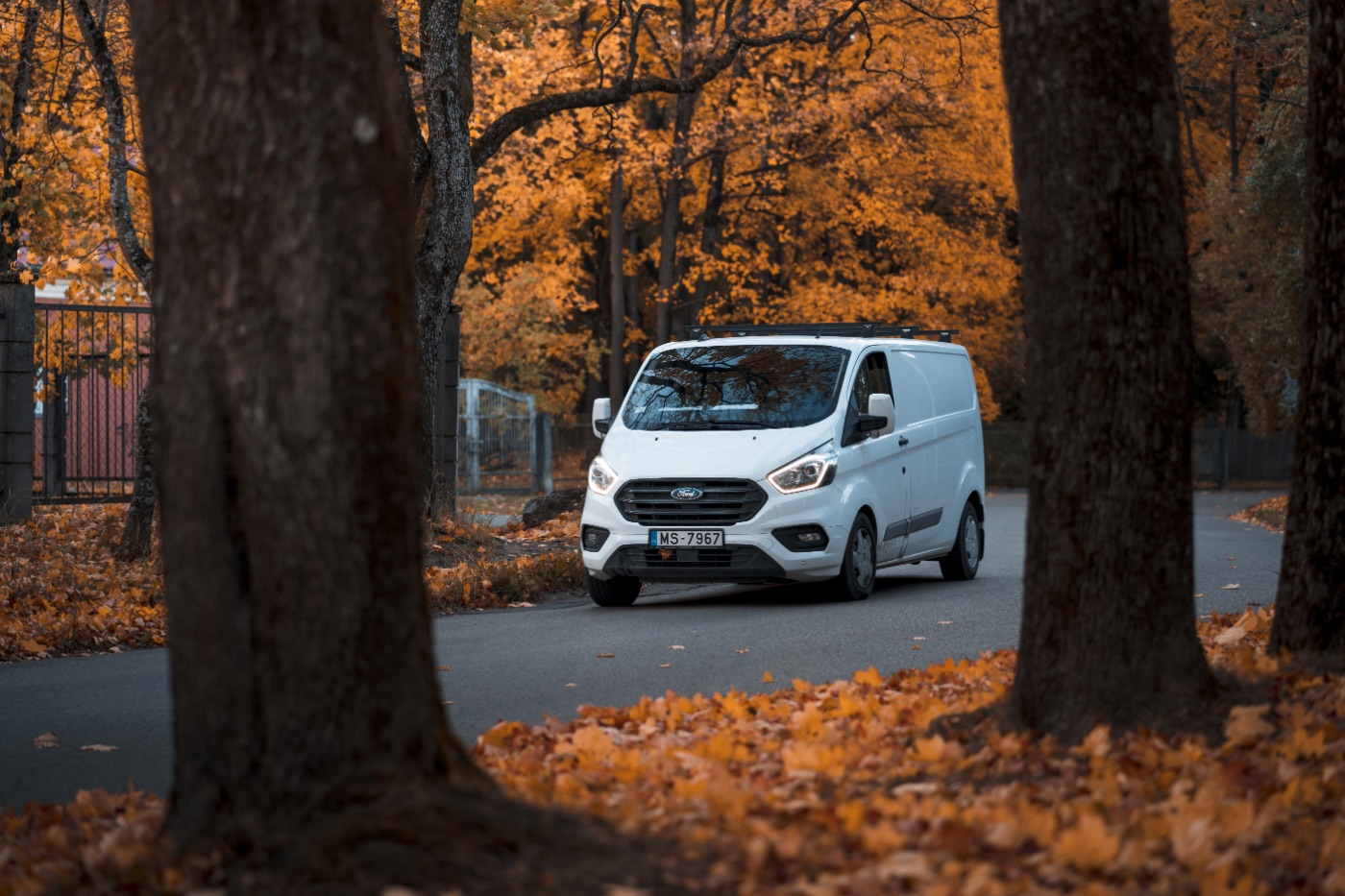
Dodge Promaster
Starting with the most affordable of the bunch, the Dodge Promaster comes ready to whisk you away on adventures starting at around $41,000. Its roomy interior and front-wheel drive system make it an ideal choice for those on a budget.
Pros:
- More budget-friendly
- Spacious interior
- Front-wheel drive
Cons:
- Less luxury features
- Limited customization options
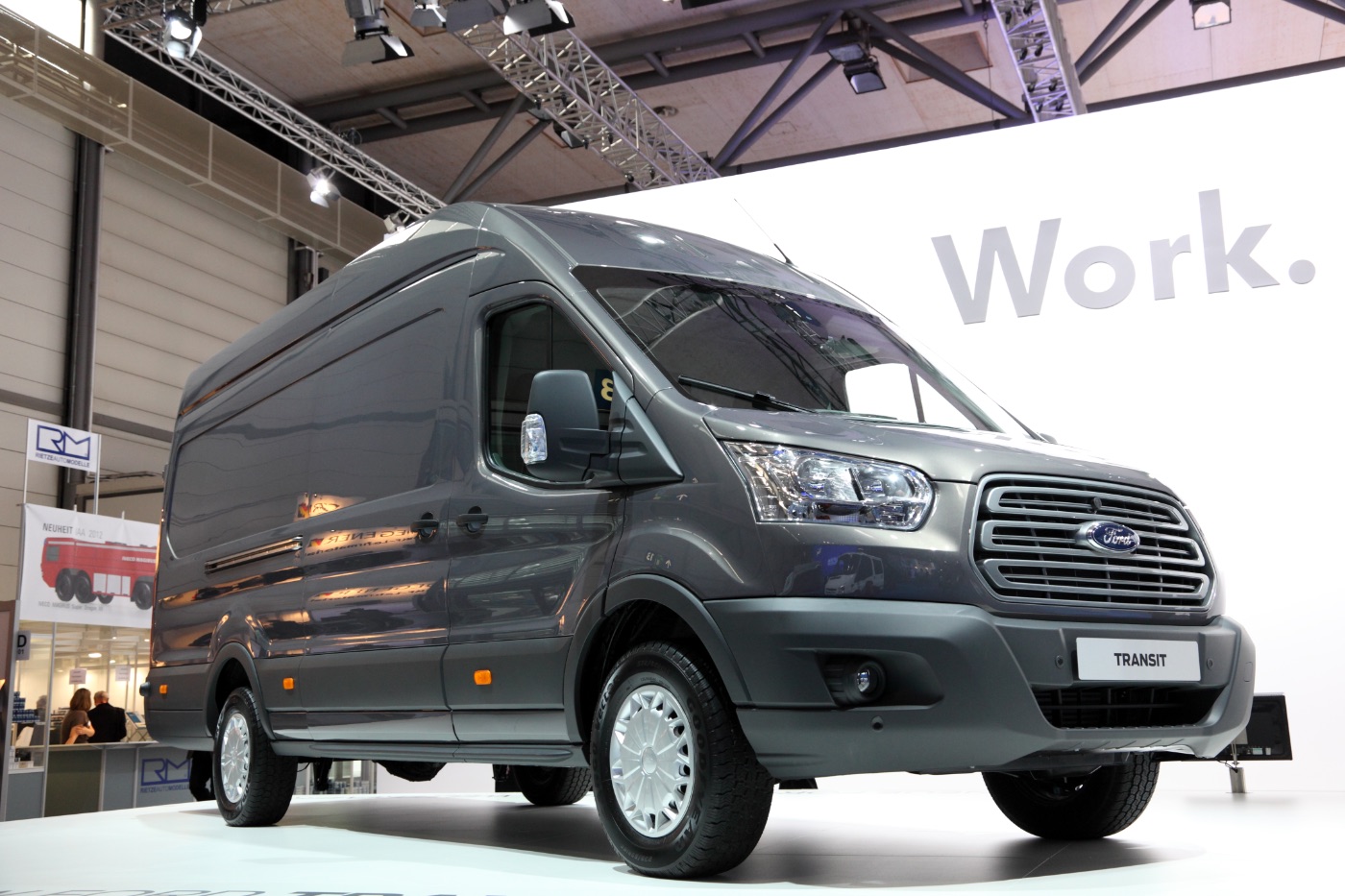
Ford Transit
For those willing to shell out a few more doubloons, the Ford Transit is another worthy steed to consider. With prices beginning at $48,000, this van boasts abundant space, and options between rear-wheel and all-wheel drive.
Pros:
- Good balance of affordability and features
- Rear-wheel or all-wheel drive options
- Roomy interior
Cons:
- Higher starting price than Promaster
- Potentially higher maintenance costs
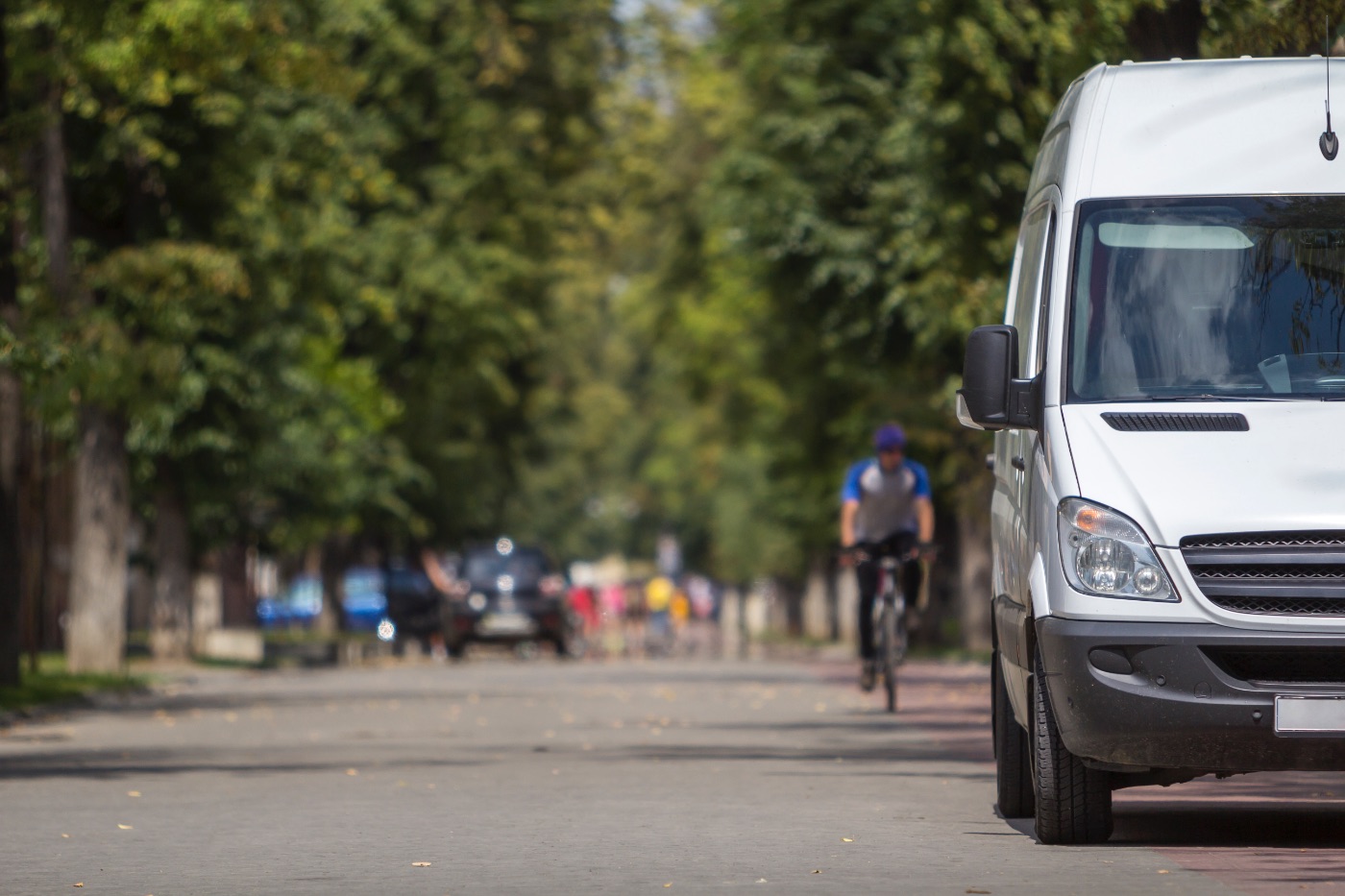
Mercedes Sprinter
Finally, for those who prefer to traverse the land in style, the Mercedes Sprinter takes luxury to the next level. Starting at a princely sum of $66,000, customization options abound, and its finest steeds come equipped with 4x4 capabilities, making no terrain too formidable.
Pros:
- Luxurious features and options
- Available 4x4 capabilities
- Customization galore
Cons:
- Higher upfront and maintenance costs
- Less budget-friendly
By now, a clearer vision of your dream chariot should be forming. Keep the pros and cons in mind while galloping towards your ideal van conversion journey.
Design and Aesthetics: Bringing Your Dream to Life
So, you're planning a van conversion, and it's time to dive into the world of design and aesthetics. After all, who doesn't want their rolling abode to be as stylish and comfortable as possible? In this section, we'll explore some key aspects of van conversion design, so grab your inspiration board and let's get started!
First and foremost, consider the layout of your soon-to-be home on wheels. Space is a precious commodity in a van, so make the most of it with clever planning. Some folks opt for the classic bed-in-the-back setup, while others go for a more creative approach, like a convertible bed/workspace. It's crucial to balance form and function in your layout, ensuring that you have room to kick back and relax without sacrificing essential storage or living space.
Of course, no van conversion is complete without some personal touches. Don't be afraid to get creative with your decor! Maybe you're a fan of bold, colorful patterns, or perhaps you prefer a minimalist, Scandinavian-inspired vibe. Whichever direction you choose, don't neglect the little details, like funky throw pillows or artwork that reflects your personality. Remember, this will be your home away from home, so make it as cozy and unique as you are.
Lastly, let's discuss lighting. In a van conversion, natural light can be a bit of a rarity, so it's important to incorporate ample artificial lighting to keep your space bright and welcoming. Consider installing LED strip lights for a versatile, energy-efficient solution, or go for a touch of whimsy with some good old-fashioned fairy lights (you can almost hear the "oohs" and "ahhs" from fellow van dwellers already). Don't forget to add some strategically placed reading lamps, perfect for curling up with a good book on a rainy day.
In conclusion, designing and decorating your van conversion is an exciting journey filled with endless opportunities for creativity and self-expression. With careful planning and attention to detail, you'll soon be cruising down the road in a one-of-a-kind home on wheels, the envy of every rest stop and campground along the way. Happy designing!
Rolling Electricity: Powering Your Mobile Abode
As an aspiring van-lifer, you're bound to encounter the great electrical dilemma: how to power your mobile lounge? In this section, we'll explore the thrills and chills of solar energy, the ins and outs of portable generators, and uncover the wonder of portable power stations.
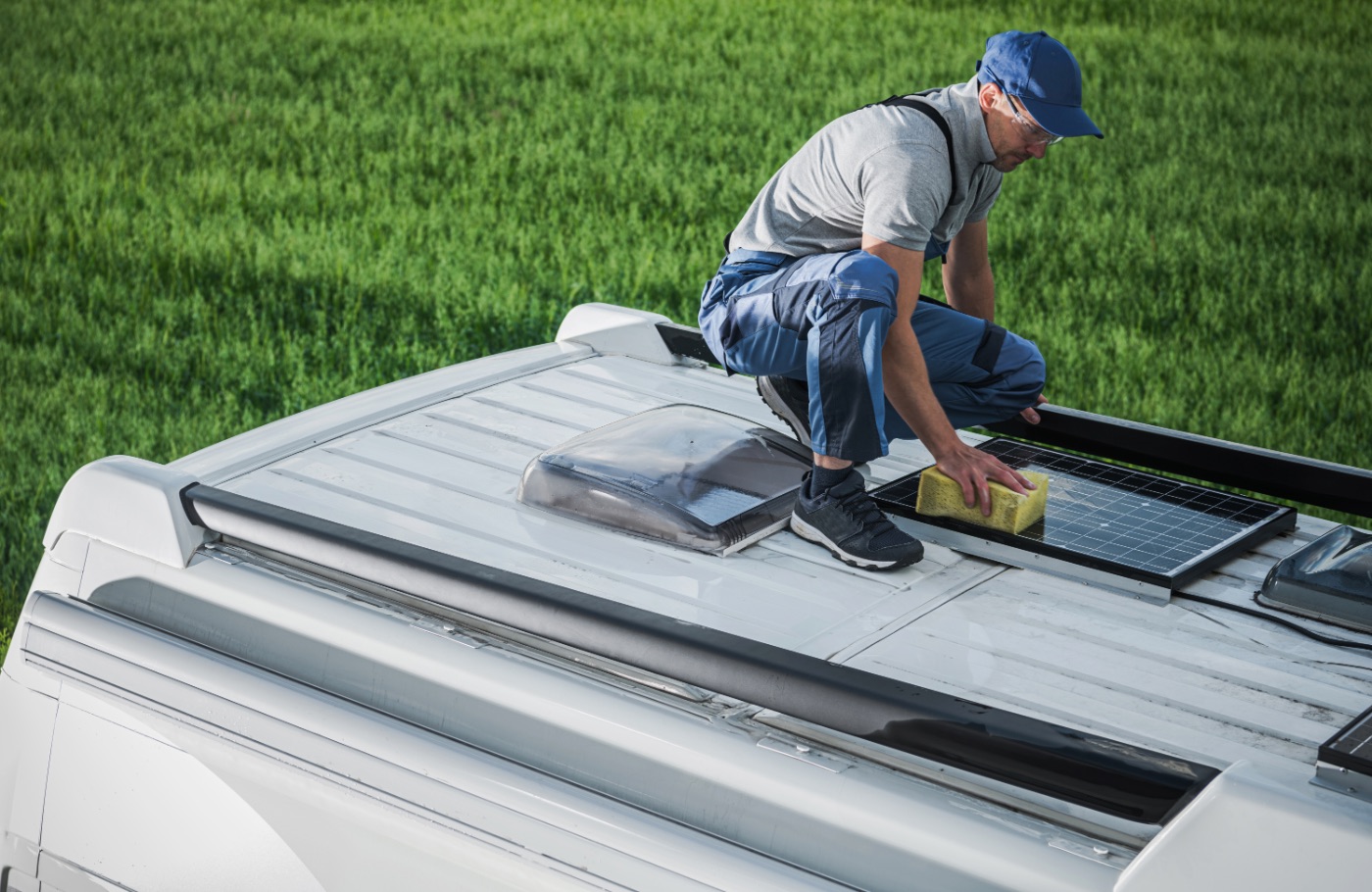
Solar Energy Options
Is there anything more satisfying than harnessing the almighty power of the sun? Reclining in your converted van knowing you're getting free energy - there's nothing quite like it! So, how do you make it happen?
First off, decide how many solar panels your van needs to accommodate your daily usage. Grab some knowledge on solar charge controllers, which make sure your panels play by the rules and do not overcharge your batteries.
Here are your options in a nutshell:
- Flexible solar panels: Bend them, flex them, make them fit!
- Rigid solar panels: Not into surprises? These solid panels got you covered.
- Portable solar panels: For the love of taking it all with you.
Roaming with Generators
If solar energy isn't your style or you need a trusty backup, portable generators join the party. These petrol-guzzling marvels can power your mobile fortress when clouds block the sun or you forget to face your panels south. Let's look at the types:
- Inverter generators: Quiet, fancy, and efficient. But brace yourself for the price tag.
- Standard generators: Affordable, loud, and proud. Your neighbors may not thank you, but your wallet will.
Always remember, with great (generator) power comes great responsibility. Keep ventilation and carbon monoxide in mind when using these unstoppable energy machines.
Portable Power Station Wonders
Last, but not least, the portable power station saunters into the electricity mix. These high-capacity batteries let you store energy from solar panels, generators, or even your van's alternator and release it when you need it. Talk about having it all!
Choosing your power station depends on your needs and budget, so do your research and find the Goldilocks option that's just right for you.
Now that you're equipped with the knowledge to power your van life, go forth and conquer the open road with your newfound electric mastery!
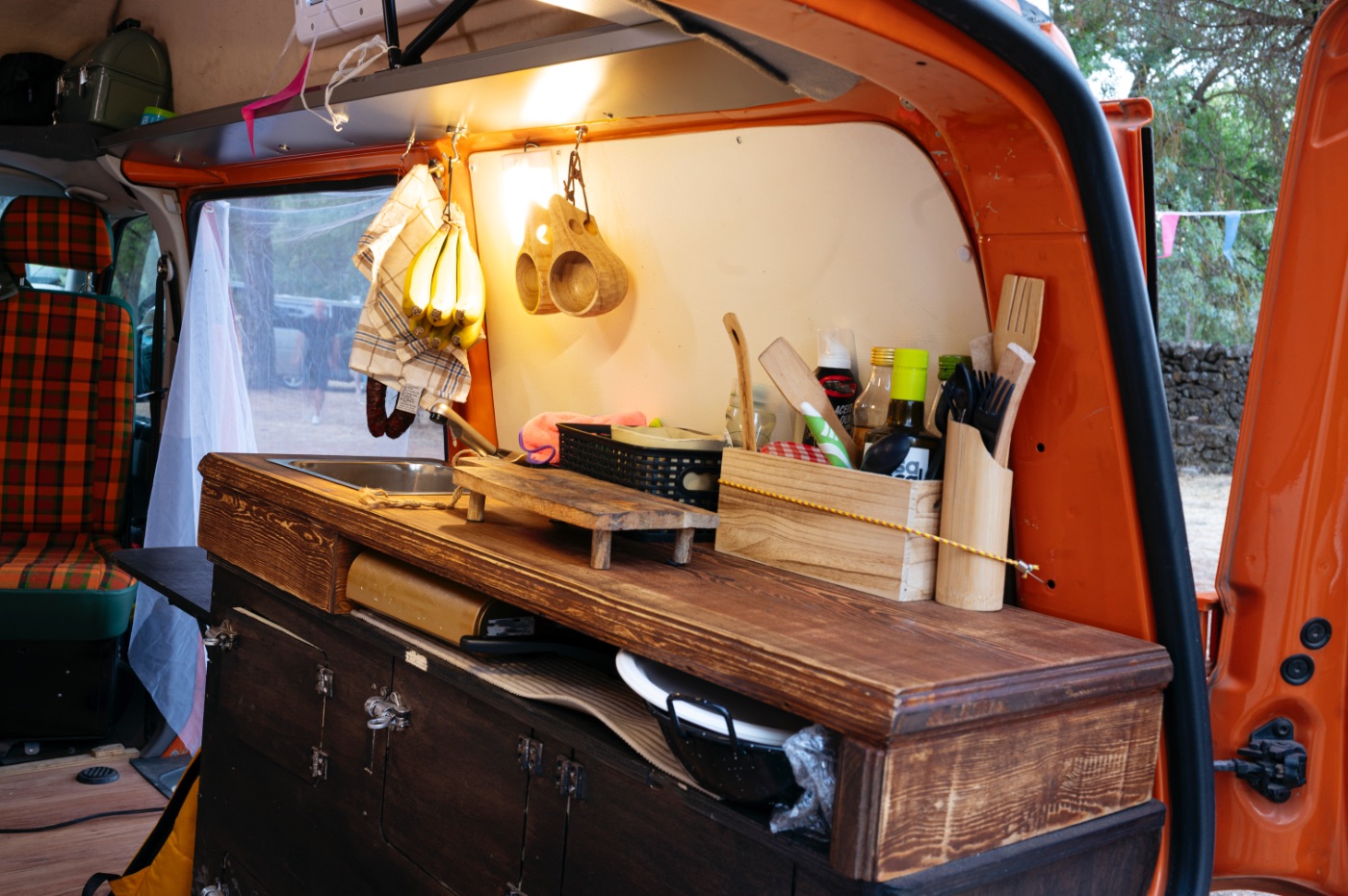
Kitchen Conundrums: Cooking and Fridging on the Go
When it comes to van conversions, designing and building the perfect kitchen can be a perplexing task. Since space can be limited, you'll need to combine ingenuity with a little creative cooking know-how.
Induction cooktops are popular choices among van-lifers due to their energy efficiency and safety. However, they can be pricier than gas models, so you'll need to weigh the costs with your cooking desires. For those on a tighter budget, Consumer Reports provides an excellent guide on induction cooking to help you decide if it's right for you.
Once you've tackled your cooking conundrum, it's time to consider refrigeration options. A common solution is the 12-volt fridge, often used by campers for its compact size and energy efficiency. But don't forget, thermal efficiency is crucial, so make sure to insulate your fridge appropriately - or you'll find your ice cream melting faster than you can say "sundae."
And of course, let's not forget those inevitable kitchen conversions that arise while attempting to perfect your van-made culinary delights. Thankfully, there are plenty of online sources to help you convert measurements with ease, such as this handy conversion guide from the Food Network.
- Cups to milliliters: 1 cup = 240 mL
- Ounces to grams: 3.5 ounces = 100 grams
- Celsius to Fahrenheit: (Celsius number * 1.8) + 32
With these helpful tips and a touch of humor, you'll conquer the kitchen conundrums that come with van conversions in no time! And remember: when in doubt, there's always the tried-and-true option of dining out. Bon appétit!

Sleep Like a Van-Tastic Log
When it comes to van conversions, one essential aspect that shouldn't be overlooked is the sleeping arrangement. After all, where's the fun in van life if you can't snooze like a diva or divo on wheels? In this section, we'll explore different options for catching some Z's in your mobile abode, without breaking the bank.
It's essential to consider the size of your van, budget, and individual preferences when deciding on a sleeping solution. Think about it; you don't want to wake up every morning feeling like a pretzel or a sardine. Here are a few options to ensure you sleep like a van-tastic log:
- Fixed Platform Bed: A popular choice with many van-dwellers, a fixed platform bed provides a cozy space for slumber with storage opportunities beneath. It's perfect for those who like to keep their sleeping and living areas separate. But, be prepared for some DIY work to cut the boards to size and secure the platform to the van's framework.
- Foldable Sofa Bed: If you're looking for a more versatile option, a foldable sofa bed can double as a couch during the day and a bed at night. Just imagine sipping your morning coffee and watching the sunrise from the comfort of a sofa that magically transforms into a bed. Conversion costs can vary depending on the materials and installation complexity, so bear this in mind when choosing your sofa bed.
- Inflatable Mattress: When budget and space constraints lead the way, it's time to pump up an inflatable mattress. Light, portable, and easy on the wallet, it's a great option for temporary or minimalist sleeping arrangements. Just make sure to keep a puncture repair kit handy, or you might find yourself waking up on the cold, hard floor of your van.
As you embark on your van conversion journey, consider these options to transform your rolling oasis into a snug retreat for the ultimate peace and comfort during your van-tastic adventures.
The Not-So-Fine Print: Insurance and Legal Matters
When diving into the exciting world of van conversions, it's crucial not to overlook the dry but oh-so-important realm of insurance and legal matters. Fear not, this nifty guide has you (and your vehicle) covered! Let's dig into the nitty-gritty of making sure your mobile palace is all set for the open road.
First thing's first: insuring that shiny new home-on-wheels. Just like your favorite mystery novel, insurance policies have fine print that could make or break your van conversion dreams. For instance, some policies limit the coverage for custom additions or modifications you've made to your van (source). To avoid sobbing into your steering wheel, make sure to find a policy that offers adequate coverage for your beautifully bespoke van home.
Next stop, legal town! Depending on where you find yourself exploring, local regulations might have a say on where you can park overnight or how long you can stay. Doing your homework on these rules will save you from unwanted surprises and potential fines. Better safe than sorry!
Here's a handy checklist to make sure your van conversion is ready to hit the road:
- Get adequate insurance coverage for your custom van – because nobody wants a heartbreak in the middle of nowhere!
- Understand local regulations on parking and camping – stay one step ahead of the game.
- Check vehicle registration requirements – "paperwork" may be a dreadful word, but it's better than "impounded vehicle".
- Keep your driving record squeaky clean – like your van's windows, by obeying the rules of the road.
In summary, being aware of insurance coverage quirks and legal matters will ensure that your van conversion adventure is smooth sailing from start to finish. After all, a well-informed van dweller is a happy van dweller!
Did you find the answer to your specific question?
👍 2 👎 1
Are you looking for the dimensions of your van?
